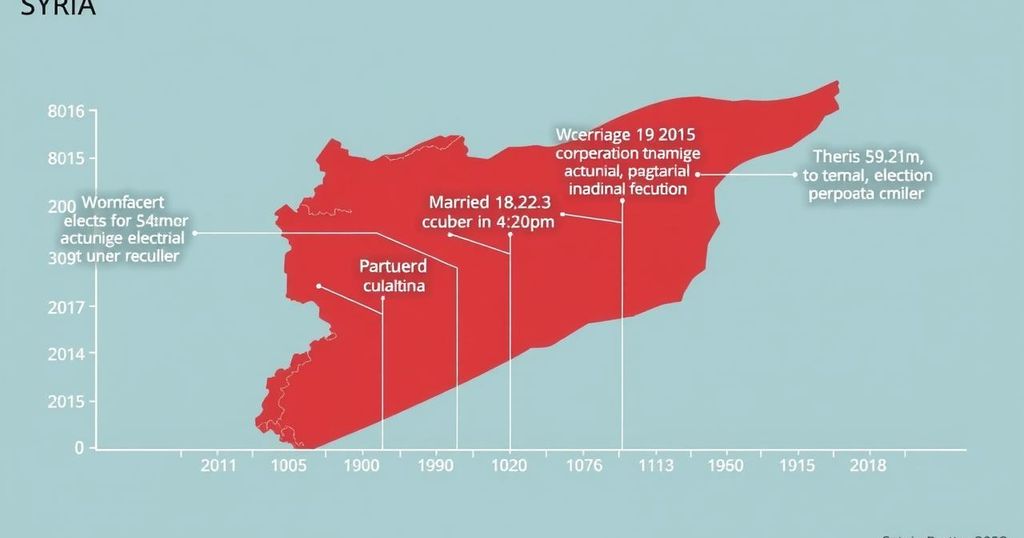Ahmad al-Sharaa, Syria’s de facto leader, indicated that elections could take up to four years to organize as the interim government focuses on preparing infrastructure and drafting a new constitution. He emphasized the importance of these reforms to prevent past failures of governance, particularly after the Assad regime’s long-standing rule. Al-Sharaa is also seeking international legitimacy and building relationships with regional powers while planning for the eventual dissolution of his group, HTS.
According to Ahmad al-Sharaa, the de facto leader of Syria, elections in the country may not be realized for up to four years as preparations are underway to establish the necessary infrastructure. Al-Sharaa, representing Hayat Tahrir Al-Sham (HTS), clarified that his interim government is focusing on drafting a new constitution, a process that could take three years. During an interview, he emphasized the necessity for this constitution to foster a stable society and avert a repeat of past governance failures, particularly under the Assad regime.
Al-Sharaa indicated that the HTS organization would eventually dissolve, an announcement expected at an upcoming National Dialogue Conference, although no specific date has been established. Additionally, he remarked on the importance of maintaining a constructive relationship with Russia, despite reports of military withdrawal from the region following the Assad regime’s fall.
Recent diplomatic interactions featuring Al-Sharaa include a visit from Ukrainian officials, enhancing his pursuit of international legitimacy as he sheds his previous jihadist image in favor of a more statesmanlike appearance. Al-Sharaa has engaged with various international delegations and conveyed that Saudi Arabia possesses a vital role in shaping Syria’s future, while advising Iran to reconsider its regional strategies.
The context of these developments in Syria is crucial for understanding the complex political landscape following the overthrow of Bashar al-Assad’s regime. Ahmad al-Sharaa, often referred to by his previous alias Abu Mohammad al-Jolani, leads a faction that has endeavored to establish a new governance system in the wake of a prolonged internal conflict. After decades of Assad’s contentious rule, the need for a revamped political structure has become apparent, with both national and international factors influencing current dynamics. The discussions surrounding constitutional reforms signal a pivotal moment in the country’s history, aimed at ensuring sustainable governance and development.
In summary, Syria’s electoral future appears uncertain with potential delays extending up to four years as the interim government under Ahmad al-Sharaa seeks to establish a new constitution and infrastructure for democratic governance. Al-Sharaa’s leadership is characterized by a marked shift towards legitimacy and international engagement, distancing from his past affiliations while emphasizing the crucial role of regional powers like Saudi Arabia. The unfolding of these events will significantly impact Syria’s trajectory in the coming years.
Original Source: www.cnn.com






